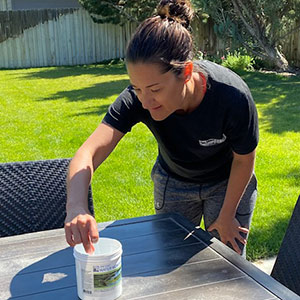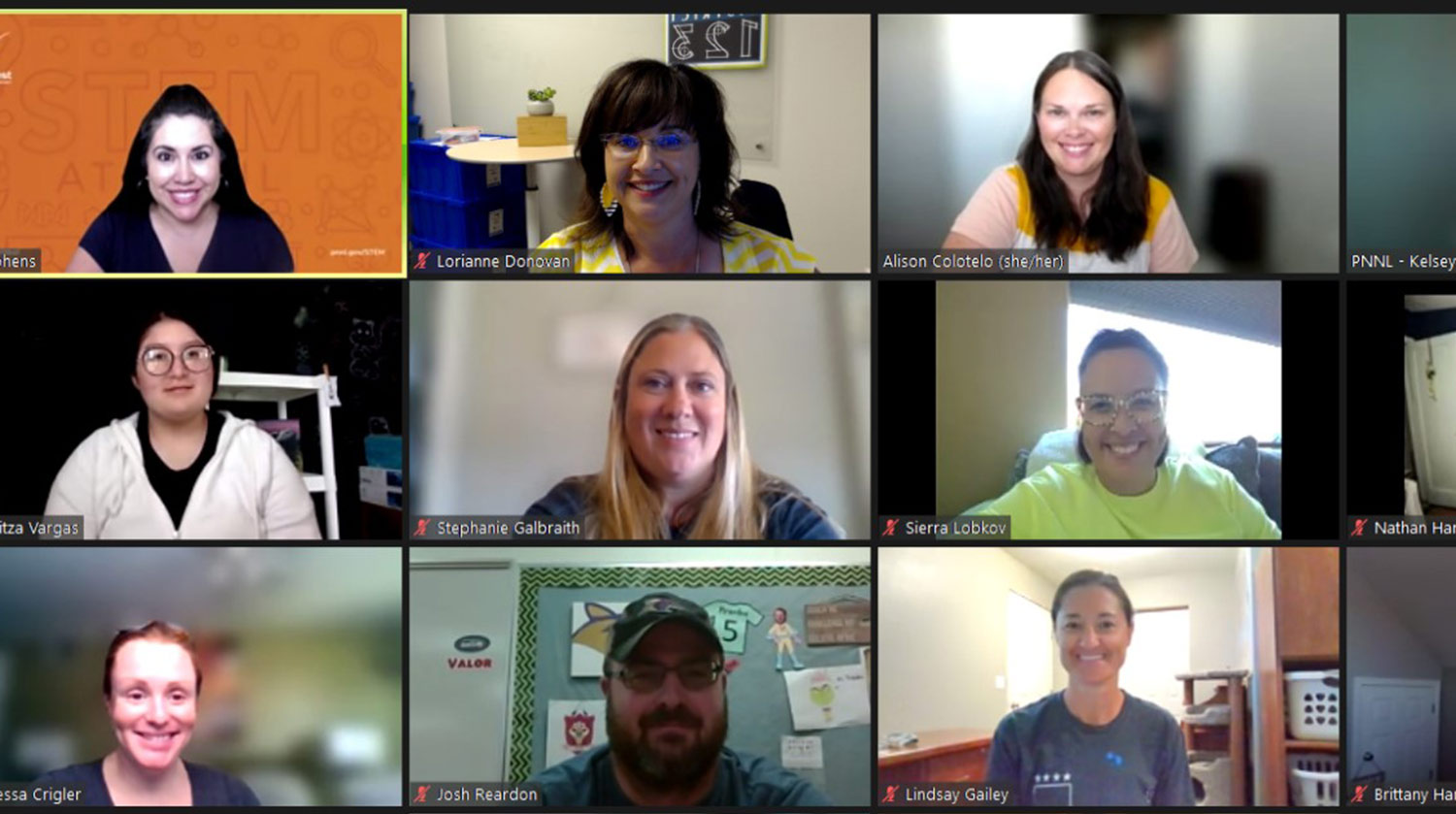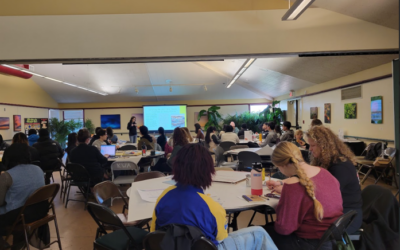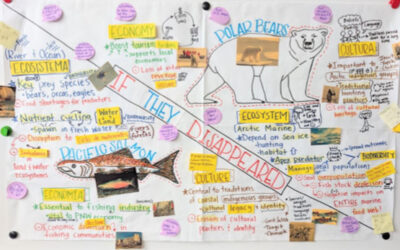Upper elementary and middle school teachers across ESD 123 joined Pacific Northwest National Laboratory (PNNL) fisheries experts and STEM education specialists to engage in a virtual, immersive, hands-on and collaborative learning experience. Together Teachers and Scientists worked to figure out potential solutions to monitoring salmon, sturgeon, and lamprey migration changes related to the challenge of climate change. Teachers focused on using local phenomena from the Columbia River Basin that runs through out the ESD 123 region.
 The Columbia River is home to multiple, highly migratory species of fish, which move from freshwater to the sea and back multiple times within their lifespan. Along these migratory routes, fish must navigate around hydropower dams, which provide much of the electricity needs for the surrounding communities. This interaction provides a unique challenge to meet our electricity needs while providing safe and effective fish passage and changing behavior patterns as our climate changes. In order to manage this interaction, researchers utilize expertise in fish biology, engineering and communications to monitor fish behavior within the river system. In this virtual Teacher-Scientist Partnership, participants explored methods and technologies that are used to evaluate how these fish are migrating and navigating our water. Participants engaged in hands on experiences such as fish respiration lab, dissolved oxygen, and water spill labs, to better understand fish biology and explore the waters they fish voyage through each year.
The Columbia River is home to multiple, highly migratory species of fish, which move from freshwater to the sea and back multiple times within their lifespan. Along these migratory routes, fish must navigate around hydropower dams, which provide much of the electricity needs for the surrounding communities. This interaction provides a unique challenge to meet our electricity needs while providing safe and effective fish passage and changing behavior patterns as our climate changes. In order to manage this interaction, researchers utilize expertise in fish biology, engineering and communications to monitor fish behavior within the river system. In this virtual Teacher-Scientist Partnership, participants explored methods and technologies that are used to evaluate how these fish are migrating and navigating our water. Participants engaged in hands on experiences such as fish respiration lab, dissolved oxygen, and water spill labs, to better understand fish biology and explore the waters they fish voyage through each year.
 When asked about how this Teacher Scientist Partnership experience will impact the classroom, here is what participant Lindsey Gailey said, ” My greatest take away from the TSP was the amount of careers involved with salmon migration. Students who have an interest in science have access to a multitude of options that really capitalize on their varied strengths. I am excited to interweave this into my lessons next school year.” Sierra Lobkov, another participant had this to say, “The TSP exceeded any expectations that I had. I came in thinking I had knowledge about salmon and our rivers, but now I feel like I have a way better understanding and can honestly teach my students more successfully.”
When asked about how this Teacher Scientist Partnership experience will impact the classroom, here is what participant Lindsey Gailey said, ” My greatest take away from the TSP was the amount of careers involved with salmon migration. Students who have an interest in science have access to a multitude of options that really capitalize on their varied strengths. I am excited to interweave this into my lessons next school year.” Sierra Lobkov, another participant had this to say, “The TSP exceeded any expectations that I had. I came in thinking I had knowledge about salmon and our rivers, but now I feel like I have a way better understanding and can honestly teach my students more successfully.”




